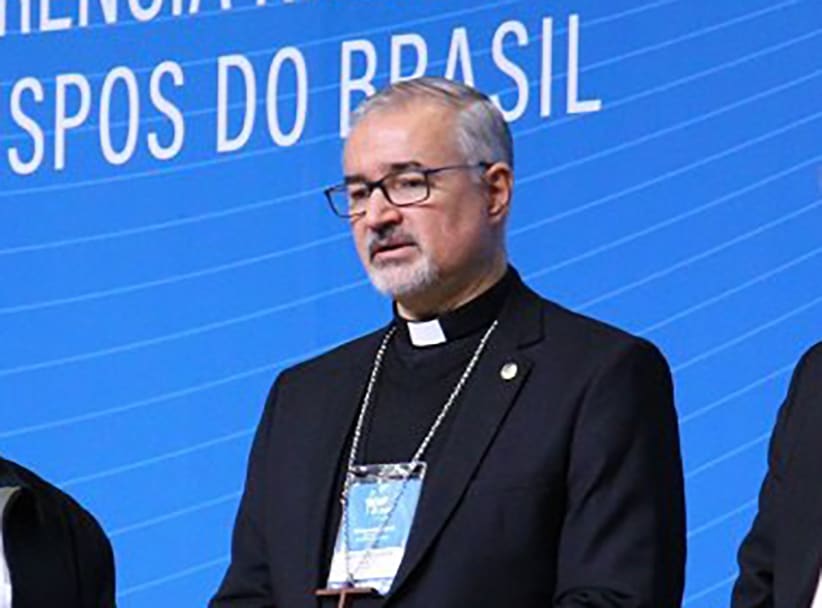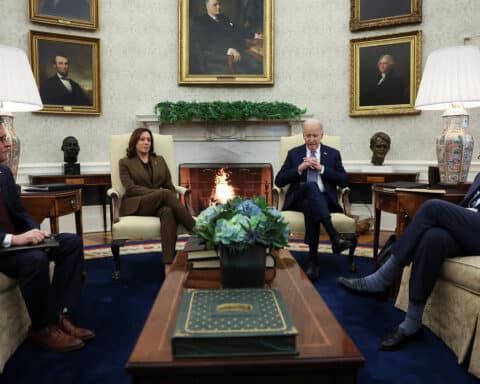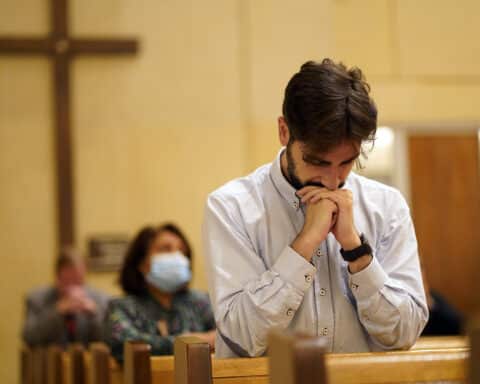SÃO PAULO (OSV News) — The politically charged atmosphere in Brazil, intensified over the past few years, led the country’s bishops to choose the concept of social friendship as this year’s theme for the Fraternity Campaign — a Lenten drive to collect funds for the Church’s social works.
Even the Fraternity Campaign, which celebrates 60 years of existence in 2024, has been facing the consequences of the South American country’s political polarization, with traditionalist groups accusing the bishops’ conference of being “communist” and promoting boycotts of the fundraising initiative.
Such attacks confirm that this year’s theme was the right choice, Archbishop João Justino de Medeiros Silva of Goiânia told OSV News.
“Brazil is supposed to be a Christian country with cordial people. But violence is widespread and can be noticed not only in politics, but in several social segments,” Archbishop Silva said.
Wanting to ‘eliminate all opposition’
The archbishop, who is the vice president of the bishops’ conference, emphasized that “the problem is not the existence of distinct political groups, with leftists and rightists, but the fact that we cannot accept different opinions and want to eliminate all opposition.”
The polarization has grown in Brazil since 2018, when far-right leader Jair Bolsonaro ran for president for the first time with an “anti-system” platform” and ended up being elected. During his tenure (2019-2022), his backers and those of left-wing politician Luiz Inácio Lula da Silva engaged in continuous disputes.
Lula successfully ran for his third term in 2022. Since he took office in 2023, the atmosphere has remained unchanged.
“We can see divides and violent reactions in our daily lives as well. We urgently need to rebuild bridges. That is not only a Fraternity Campaign, but also a campaign for fraternity,” Archbishop Silva said.
Applying the pope’s teachings
Fraternity and social friendship — the slogan for the 2024 campaign — are central concepts in Pope Francis’ 2020 encyclical, “Fratelli Tutti.” In the document, the pontiff explains that recognizing each human being as a brother or a sister is the basis for social friendship, a form of love and solidarity that transcends all borders and is collectively built for the common good.
“Our desire is to apply the pope’s teachings to the Brazilian reality and bring them to the people,” Father Jean Poul Hansen, the bishops’ conference’s executive secretary of campaigns, told OSV News.
Father Hansen and his colleagues released a series of didactic publications about social friendship and the ways of achieving it in Brazil. A roadmap conducting Catholics from a personal opening to fraternity to the construction of social friendship is one of the major topics suggested by the coordinators.
It all begins with expanding our circle of relationships beyond personal preferences, he explained, following the guidance of “Fratelli Tutti.”
“We allude to the Book of Isaiah and the need to ‘enlarge the place of (our) tent.’ We must do it first as individuals and then as communities in order to attain society as a whole,” Father Hansen said. The final goal is to transform the current culture of hatred into a culture of love, he added.
Social media boycotts
This year’s Fraternity Campaign was officially launched Feb. 14 and will conclude March 28. All donations received by parishes, dioceses and communities all over Brazil on Palm Sunday — March 24 — will be directed to the campaign’s fund, which finances Catholic social works.
Since September 2023, the bishops’ conference has been promoting conferences about this year’s campaign.
“I took part in most regional encounters about it with members of the clergy and laypeople. Many participants told us that discussing social friendship was much needed,” Father Hansen described.
While on social media some groups try to undermine the Fraternity Campaign’s teachings, in “Catholic communities of poor people everybody feels that we live in an unhealthy world and that we need to convert ourselves and transform it,” he said.
“Those are the people who engage in our campaign and make it work. Those who try to organize boycotts are influential only on social media,” Father Hansen argued.
Archbishop Silva said that since 1964 — when the first national Fraternity Campaign was promoted — the theme of violence has appeared on a number of occasions. But this year, a concrete suggestion to deal with it is being presented, he added.
“Under the light of Pope Francis’ encyclical, we can meditate about ways of overcoming it,” Archbishop Silva concluded.





